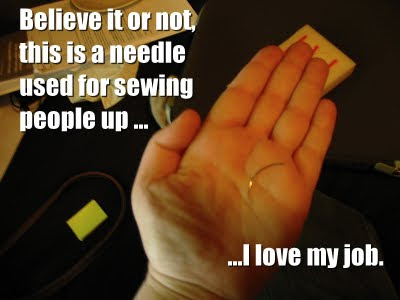If you read this blog enough, you’ve probably figured out that I greatly enjoy the work of Michael A. Stackpole. He’s not my favorite writer in the universe, but he’s well up there. Several of his books are my favorite literary comfort foods. One of them probably saved my life once. Now he’s doing a little ebook experiment, and if you’re willing, I’d like to invite you guys to participate.
Full disclosure: I think I’ve exchanged maybe two emails with Mr. Stackpole in my life, and one of them was about a technical problem with his website. We are not personal friends, I’m pretty sure he doesn’t know who I am, and he did not ask me to write or post this entry. I just like his work and am interested in the outcome of his experiment.
Mr. Stackpole is a big promoter of ebooks and electronic reading. After he was dropped by a publisher a few years ago, he went independent and began selling his work online. With the recent explosion in ebook sales, he is now on track (he says) to have his ebook work pay his mortgage and health-insurance costs by year’s end. Not too shabby. I wouldn’t mind being there someday, with ebooks or physical books—and ebooks pay the author a lot more per copy than the dead-tree kind. Recently, his electronic-only books like In Hero Years … I’m Dead have done quite nicely, and been good reads to boot.
Stackpole’s best-known for his Star Wars tie-in novels about X-wing pilots, but he’s written some nice epic fantasy, too. Swords and horses aren’t really my genre (I think my parents spoiled me by reading me J.R.R. Tolkien when I was four), and I haven’t been able to finish everything he’s written in the field, but his Talion: Revenant is probably my favorite non-Tolkien fantasy. I got it for Christmas a few years ago, fell in love with the characters, and never looked back.
Talion: Revenant is about an orphaned boy who becomes a Justice—sort of a fantasy version of a marshal, with law-enforcement authority and the ability to pull souls from those convicted of capital offenses—and who, as an adult, is given the task of protecting the king who, long ago, slaughtered our hero’s family. The novel is written with two threads, with alternating chapters following the present-day story of the bodyguarding assignment and the times-past tale of the hero’s development as a Justice. It all ties together beautifully in the end, with a neat little twist, and the world is richly developed as a good fantasy world should be. And it doesn’t hurt that it shares a name with Revenant, the Stackpole-created superhero who inspired Masks all those years ago.
Talion: Revenant was the first novel Stackpole wrote, although not the first he published, and he says it’s the cause of one of his most frequently asked questions: “When are you going to write a sequel?” Now he’s finally named his terms on that second book, and set up an interesting little experiment.
Stackpole sells his own ebooks through his website, Stormwolf.com. Talion: Revenant is available for almost every e-reader that’s out there, including Nook, iPad, Kindle, etc. And its author has announced that, because he has a hole in his schedule around January that he thinks is big enough to squeeze in another novel, he’s willing to make that novel the long-awaited Talion: Nemesis if he can sell 5,000 e-copies of the first book before then. Bought through his website, the book is $5, which is less than my mom paid for my paper copy all those years ago, and you can read the early chapters for free online to see if you like them.
Now, I have a pair of dogs in this fight. First and foremost, I want to read that sequel. I love Talion: Revenant, always have, and would be delighted to get another adventure featuring that hero and his world. I’ve already bought an EPUB copy to take with me on my little traveling netbook, which doubles as my e-reader. But Stackpole has asked fans not to go around buying multiple copies and skewing his results—he wants to gauge the level of interest in the sequel, not the obsession level of a few fans. So if I want to read that sequel, I would do well to persuade a few new readers to buy.
Second, I’m interested to see whether Stackpole can pull this off. Because Masks is now off the table for traditional publishing, I may well decide to sell it as an e-book once it finishes up as a serial. It would be nice to have a functioning business model, especially if it pays my bills while I write a second serial (and if there’s enough interest, I probably will). I’d like to see if Stackpole can make this thing work, and I’d like to see if I can pull in a few sales for him—since one day I might be pulling in a few sales for me.
I have no illusions that I have enough blog readers right now to drive 5,000 sales of a book most of you have never heard of, but if you do enjoy epic fantasy, I ask you to give the free chapters of Talion: Revenant a try. And if you like them, I ask you to gamble five bucks that you’ll like the rest of the book. Basically, I’m asking you to become a patron of the arts if you care enough to patronize them. That status and a kickass novel aren’t too bad a reward for a five-dollar investment.
You can read the free chapters of Talion: Revenant here:












